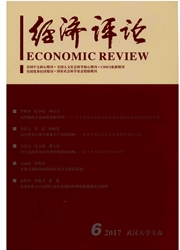

 中文摘要:
中文摘要:
开放经济条件下,农村企业在面对外生资本收益率情况下追求利润最大化,按照总资本额雇佣劳动力,而剩余的农村劳动力必须在家庭经营中实现自我就业或者选择转移到城镇。由于转移成本的存在和家庭经营的外延功能,农民容易接受一个低于企业工资的人均家庭经营纯收入,农民收入水平的提高很大程度上取决于企业劳动所占比重。劳动力转移到城镇对农村所产生的作用,很大程度取决于转移成本的大小,降低转移成本对于加快农村生产达到均衡很重要。本文通过分析农村家庭的消费与两种生产行为,运用动态分析方法,从城乡统筹的视角出发构建农民经济行为模型,将农村发展与城镇化纳入统一的分析框架,为城乡统筹理论提供微观基础。
 英文摘要:
英文摘要:
In an open economy, rural enterprises, pursuing profit maximization in the face of exogenous return on capital, would hire labor in accordance with total capital. The surplus farm labors outside the enterprises must be self - employed in family business or choose to move to town. It is easy to accept much less income of the family business than enterprises' wage to farmers since the existence of transfer costs and functional extension of the family business. An income hike of farmers depends largely on the proportion of labor employed in rural enterprises. Reducing transfer costs is important to accelerating balance of rural production, which determines the impact of labors' transfer on rural economy. This paper establishes models of economic behavior of farmers by analyzing rural household consumption and two kinds of production behavior with the perspective of urban and rural areas by using dynamic analysis methods,which provide a micro foundation for urban and rural theory by a unified analytical framework including rural development and urbanization.
 同期刊论文项目
同期刊论文项目
 同项目期刊论文
同项目期刊论文
 期刊信息
期刊信息
